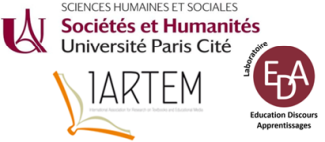This paper aims at analysing how Geography teachers relate to the topic of Climate Change. Recent curriculum changes have practically disregarded the topic from Geography syllabuses, more focused now on Basic Learning Targets and the development of general skill all school subjects should address. In spite of this absence of Climate Change topics the interrelation between human and natural phenomena is a core idea in all years where Geography is a Compulsory subject.
The importance of teaching about climate change in schools is becoming very important if we want our students to understand and address its impacts, empowering them with the knowledge, skills, values and attitudes needed to act as agents of change (UNESCO, 2023). Still, recent published reports state that, in spite of the importance of the topic, it is not an explicit topic in the curricula of many countries. In fact, even if the topic is addressed, a high percentage of students still faces difficulty in explaining what it is about, leaving also concerns related to the quality of the education about climate change than is being implemented (UNESCO, 2023).
In Europe, the situation differs from country to country. Enka and Budke (2023) consider that the fact that, in some countries, climate change is an abstract concept in the curricula, may be seen as an advantage as it gives teachers more creativity to address the topic the way they want to. The problem seems to be more problematic for less experience teachers due to the fact that, as when content is not explicitly mentioned, probably they will not teach about it.
The research question we want to investigate is this: how are teachers dealing with the fact that curriculum changes have reduced the visibility of important topics such as Climate Change and how are educational resources addressing the topic?
The methodology of analysis will focus a mixed method type using qualitative and quantitative approaches. Curriculum documental analysis will help understand how the topic of climate change is being addressed in the present Portuguese curriculum. Geography teachers will also be questioned about the topic, through a questionnaire, as they are the ones talking about the climate change in the classroom. We want to understand if they teach about climate change, what are the main resources used (including textbooks) and what Geography topics are connect to Climate Changes activities.
Textbooks have to be aligned with the national curriculum, which means that, if the topics are not explicit in terms of learning, most certainly editors will not focus on them. So, what other sources of information are Geography teachers using to talk about Climate Change? These are examples of the questions we will ask them.
The research will provide both qualitative and quantitative data that will help to understand what kind of educational resources are being mobilized to address the topic of climate change. Through this research we intend to demonstrate that, in spite of not being present in the new curriculum, the topic of climate change is very important as a school Geography content.
As mentioned above, the main purpose of the research is to understand the role of textbooks and educational media in providing activities and material that can be explored by teachers to talk about climate change in their classrooms. Preliminary data suggest that the topic is addressed mainly in Basic Education (12 – 15 years old), and that Textbooks are still an important source of information. Yet, other sources gain relevance such as the internet and documentaries. In many cases, addressing the topic of climate change seems to be dependant on the particular interest on the teacher, not so much the relevance of the topic. Learning from teachers is certainly a good indicator on how Textbooks and other educational media should support the teaching of such an important topic. And the results of the research will be sent to publishers and author that are responsible for creating such educational materials.
UNESCO (2023). Climate change communication and education country profiles: Approaches to greening education around the world. Global Education Monitoring Report. https://unesdoc.unesco.org/ark:/48223/pf0000387867
Enke KA and Budke A (2023) Preparing students for a changing world: how geography curricula in Europe are tackling climate change. Frontiers in Education (8). https://doi.org/10.3389/feduc.2023.1216780
Hermans, M. (2016). Geography teachers and climate change: Emotions about consequences, coping strategies, and views on mitigation. International Journal of Environmental and Science Education, 11(4), 389–408. https://doi.org/10.12973/ijese.2016.326a

 PDF version
PDF version
